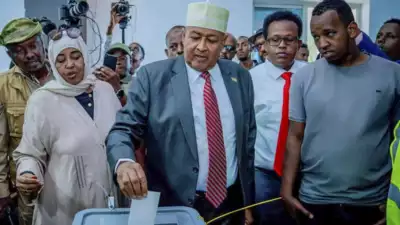
Abdirahman Mohamed Abdullahi has secured a decisive victory in Somaliland’s presidential election, garnering approximately 64 percent of votes against incumbent President Muse Bihi Abdi’s 35 percent. The election, delayed for two years due to funding constraints, marks a significant political transition in the self-declared republic.
Both candidates campaigned on platforms emphasizing economic revival and international recognition for Somaliland, which has maintained independent governance, currency, and security structures since declaring independence in 1991. Despite building stable political institutions, the territory remains internationally unrecognized, limiting its access to global finance and restricting citizens’ mobility.
The new administration inherits ongoing negotiations with Ethiopia regarding controversial coastal access agreements. The proposed deal, offering Ethiopia sea access in exchange for potential recognition consideration, has heightened regional tensions, particularly with Somalia’s central government.
The election occurs amid shifting regional dynamics, with Somalia strengthening ties to Ethiopia’s traditional rivals following the agreement. Somaliland’s government maintains optimism about potential international recognition.
The peaceful transition of power demonstrates Somaliland’s continued political stability, contrasting sharply with Somalia’s ongoing security challenges. The new leadership faces the complex task of balancing regional diplomatic relationships while pursuing economic development and international recognition.
